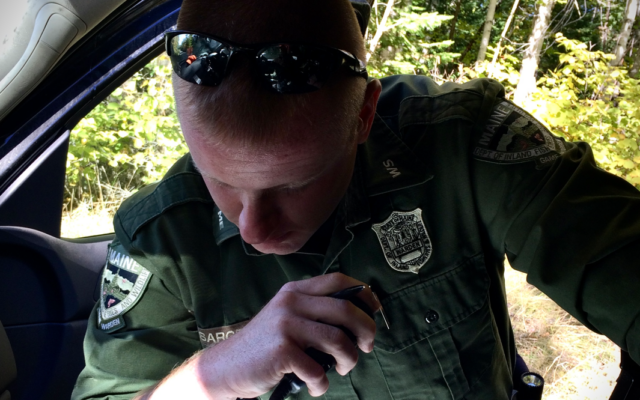
What it takes to be a Maine game warden
By Chris Sargent
I can’t begin to count how often I heard it during my time with the Maine Warden Service. Not only from members of the public, but also commonly from other law enforcement officers.
“I was going to be a game warden too.â€
I always felt the statement was innocent enough. It served as a kinship builder, forging a connection between the person who said it and a warden. It was often a great ice-breaker for someone wishing to spark a conversation, and I felt a sense of pride when I heard it, as if I was part of something to be admired, or held in high regard.
Typically, there would be follow-up about how they had taken “the test,†had gone to school for the career or had done some ride-alongs with a warden when they were younger, and that the department wanted them, but for whatever reason, their dream had faded.
I always offered some sort of sentiment, whether encouragement to express renewed interest if they still held onto their dream, or maybe a simple “Oh, that’s too bad. It’s a really great career.â€
Regardless, it was rarely difficult to understand why the person wasn’t wearing a red wool jacket of their own: becoming a Maine game warden is tough.
The road to becoming a game warden takes far longer and is more difficult than most people realize. There is a common misperception that a simple love of hunting, fishing and the outdoors, coupled with a desire to work in those arenas, is sufficient.
At the risk of bursting bubbles, let’s take a look at what becoming a Maine game warden really looks like.
If your application looks interesting to the Maine Department of Inland Fisheries and Wildlife, you will be notified and the hiring process, which involves several specific and difficult phases, will begin.
During my hiring process, the 60 or so candidates were whittled to six hires during a 12-month vetting process. It included completing the Maine Criminal Justice Academy’s physical fitness test at the 50th percentile, rather than the academy’s basic entrance standard of the 40th percentile for municipal and county officers.
This higher standard is held by both the Maine Warden Service and the Maine State Police.
The remaining steps needed to be completed in succession, including a written exam specific to hunting, fishing and outdoor recreation, as well as a timed writing prompt exercise, which was graded by an independent agency. Next was an oral board consisting of a lieutenant, sergeant and game warden, during which they questioned, probed and rapidly fired scenarios at the candidate under increasing stress levels.
The subsequent practical exam included identification of ducks, traps, furs, hunting equipment, fishing gear and hands-on manipulation of various firearms, trapping equipment and other items.
Upon receipt of a conditional letter of hire, a warden service investigator completed an incredibly in-depth and extensive background investigation. Then there was a swim test, a comprehensive medical examination, a psychological examination, a polygraph examination and finally, an interview with a colonel.
Being hired isn’t the finish line.
All new hires must complete a rigorous 12-week Advanced Warden School, plus the basic 18-week law enforcement training program at the Criminal Justice Academy required for all Maine officers.
As a sheriff’s deputy, I had already attended the academy several years prior. While I believed the basic police academy was challenging, it hardly held a candle to the Advanced Warden School, where we were tested to the limit in every imaginable way.
The school’s primary focus is to educate new hires on fish and game laws, recreational boating, plus ATV and snowmobile laws, as well as how to be a well-rounded warden. But there is a large emphasis on physical fitness, endurance and further training in all other aspects of law enforcement.
Following that, there are up to several months of field training before a warden is authorized to work on their own.
Game wardens are the highest trained, most specialized law enforcement officers in the state. Why? Because their jobs demand it.
While a regular police officer, deputy sheriff or state trooper clocks in and out of work, a warden remains accountable and available at nearly every moment’s notice: ready for anything, at any time.
Our outdoor communities, and the people of Maine deserve the highest quality law enforcement officials available, and the Maine Warden Service provides just that.
I left the Maine Warden Service prematurely. It was a hasty decision made for the wrong reasons, and I regret it daily.
But I will forever be proud of the fact that when I see one out and about, I can walk up, shake their hand, and say, “I was a game warden.â€